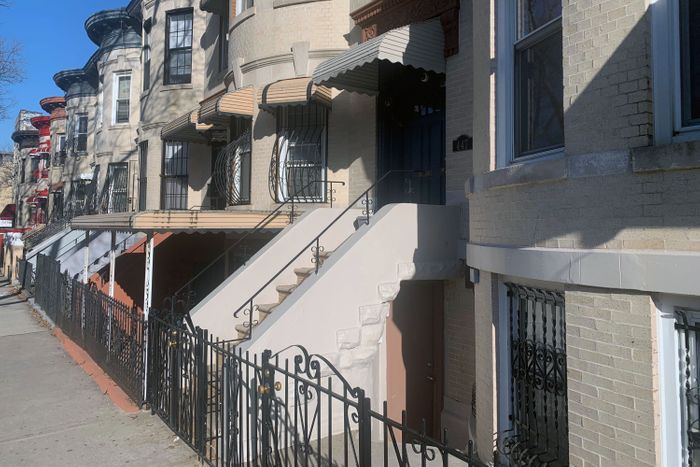Mayor aims for apartments in basements, garages and backyards

A row of residential buildings with basement units in East New York, Jan. 22, 2020 Photo: Trone Dowd/THE CITY
 The de Blasio administration wants to make it easier for homeowners to legally add apartments in basements, atop garages — and even in backyard tiny houses — to boost affordable housing.
The de Blasio administration wants to make it easier for homeowners to legally add apartments in basements, atop garages — and even in backyard tiny houses — to boost affordable housing.
The plans, shared Wednesday with THE CITY, entail easing parking requirements as well as supplying low-interest loans to finance construction that would bring the new digs up to code.
“The key to unlocking more housing for New Yorkers is just below our feet,” Mayor Bill de Blasio said in a statement. “Legalizing basement apartments will give homeowners a new way to make ends meet and give thousands of New Yorkers an affordable place to live.”